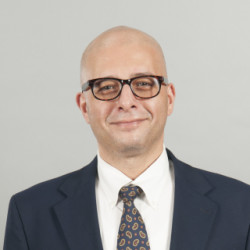I am an orthopaedic surgeon who works in an academic medical center. When people think of academic medical centers, they imagine large institutions where physicians perform a great deal of research and engage in teaching young doctors while administering clinical care to patients. Perhaps that is true, but it is not the reason why we end up working in these places.
We are often asked to define what makes orthopaedic surgeons in academic medical centers different from the bulk of our counterparts who work in non-academic settings. I am supposed to answer that the difference is research and teaching. But it is not. We do engage in research and teaching, but that is not how most of us end up where we are. We are not always defined by what we do, but rather by what we do not do.
Most of my friends in orthopaedic surgery are not academics. They chose jobs in private practice, and when that became less sustainable, most of them moved into hospital-based practices. They work for hospitals, just like me. It was not my love of research or their disdain for academics that defined the choice of where we worked, but the perception of autonomy.
Most surgeons want autonomy — the ability to make their own choices about their practices. Autonomy is a word I have heard repeated in many conversations. Surgeons want autonomy to be able to say that they do not have a boss. My friends who went into private practice years ago talked a great deal about autonomy. They could hire whomever they wanted to help them in their practice and they could decide to operate on whomever they wanted. They called their own shots.
I always had a boss and probably always will have a boss. As a result, I believed over most of my career that I had less autonomy. However, now I see that no one really has the full autonomy they crave.
In academic practice, there is a structure that feels oppressive at times. The same is true outside of academics. The difference is not why we made our separate choices in type of practice. The difference is in how things turned out. Nearly every surgeon that approaches me inquiring about returning to academics says that they have lost their autonomy. Perhaps it was well that I never had any.
What appears as autonomy is often an illusion. All of our careers in orthopaedics reveal that absolute freedom at work often comes at a price. Some people get freedom to do what they want by taking jobs that pay poorly or do not offer much excitement or challenge. Some jobs turn less attractive over time, with autonomy slowly evaporating under the constraints of complex medical systems. Most of us get introduced to the boss we never thought we had over time.
I used to be ashamed that I did not have the freedoms that some of my friends had. Now I see things differently.
Last week, we had a private practice surgeon speak to our residents about his wonderful practice. He spoke about all of his autonomy and wrapped his message in the moral imperative to keep costs in health care down. While he may have some freedoms to do what he wants, he still can only function in the shade of a medical center that will take all comers with all problems. Perhaps he actually does what he wants without question, but all I saw was someone as constrained as the rest of us.
We all are tethered. If some of us function in academic centers with all that entails, the rest of us carry burdens as well.
What has been your experience regarding autonomy in orthopaedics? Share your thoughts in the comment section.
Dr. John Elfar is the tenured chairman of orthopaedics at the University of Arizona in Tucson. He is a Harvard Medical School trained surgeon-scientist with an active laboratory and previously directed the Center for Orthopaedic Research and Translational Science and Center for Orthopaedic Population Studies at his previous institutions.
Image by dane_mark / GettyImages







